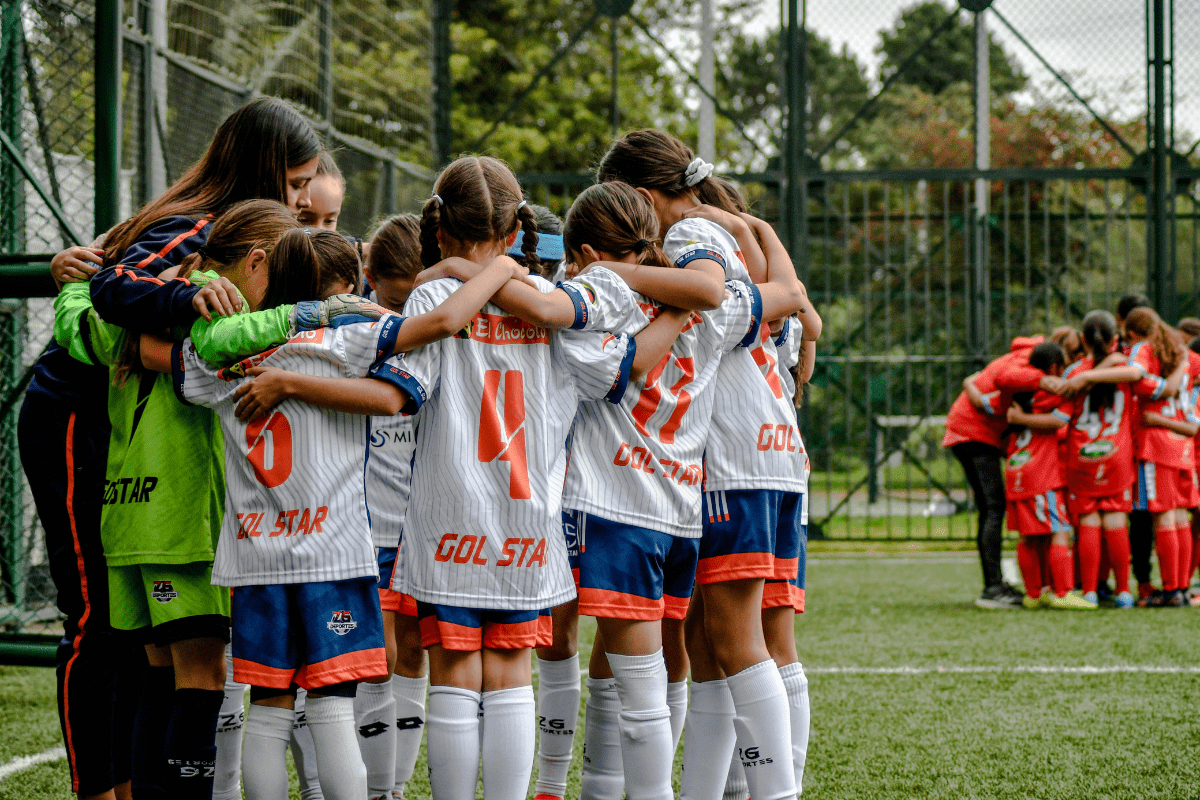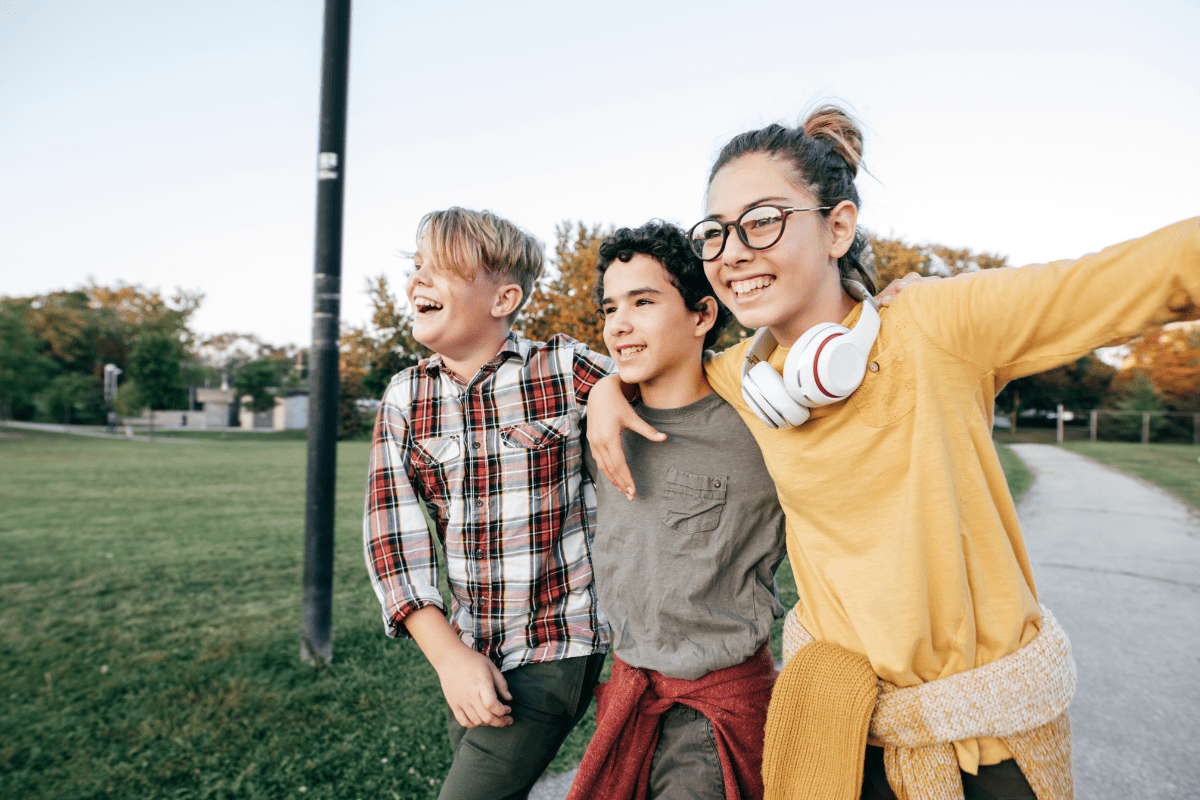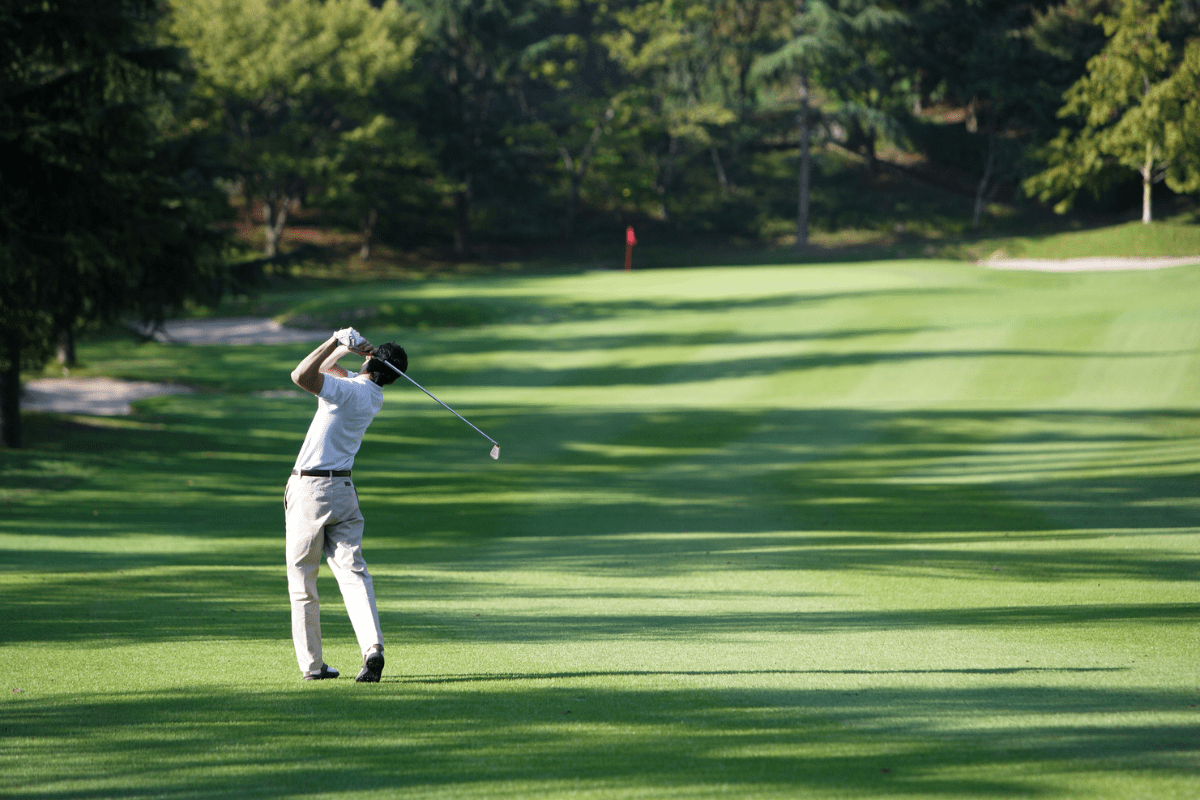Getting your child involved in youth sports shouldn't require a detective's license, yet many Tacoma parents find themselves lost in a maze of registration deadlines, conflicting schedules, and hidden costs. With only 19% of Pierce County youth getting their recommended 60 minutes of daily physical activity, finding the right sports program has never been more critical.
The big three team sports dominate Tacoma's landscape
Soccer, basketball, and baseball form the foundation of Tacoma's youth sports ecosystem, with multiple organizations offering programs at various competitive levels and price points. Let's break down what you actually need to know to get your kid on the field (or court) without losing your sanity.
Soccer options range from casual to ultra-competitive
North Tacoma Soccer Club (NORTAC) serves ages 4-19 with both recreational and competitive tracks, including their elite Sparta Tacoma program for serious players. The recreational division emphasizes fun and development with volunteer coaches under professional supervision, while Sparta Tacoma offers year-round training with licensed coaches. Here's the kicker… registration for fall programs typically closes in late July, so mark your calendar now or prepare for the dreaded waitlist shuffle.
Metro Parks Tacoma runs its own Youth Community Soccer League for ages 4-15, with the 2025 season running from September 29 through November 22. At $96 per participant, this program includes once-weekly practices and Saturday games at various Parks Tacoma locations. For those who prefer climate-controlled chaos, the Tacoma Soccer Center offers eight-week indoor sessions for $96 per player plus a $20 annual youth membership, with games organized by birth year from 2009-2016.
Basketball gets a major Seattle Storm boost
This year's basketball scene just got way cooler thanks to Metro Parks' new Junior NBA partnership. Every player receives a Seattle Storm replica jersey and vouchers for two Storm game tickets at Climate Pledge Arena. As Zack Shea, Metro Parks Youth Sports Coordinator, puts it: "We're excited for this opportunity, and I know the kids will be too. Enthusiasm for the Seattle Storm is exploding right now, and we want to tap into that."
Registration for the 2024-25 season runs October 7 through November 24, with practices beginning the week of December 9 and games running through February 8 at Metro Parks gyms throughout the city. The YMCA also offers youth basketball at multiple locations including Pearl Street Family YMCA (1002 S Pearl St) and Tacoma Center YMCA (1144 Market St), with fall season registration closing September 4.
Baseball and softball find their home at Soundview
Soundview Little League serves Brown's Point, Tacoma, Fircrest, University Place, and surrounding areas with divisions from T-ball for ages 4-6 through Seniors for ages 13-16. Spring season registration typically opens in December, which means you'll be thinking about baseball while doing your holiday shopping… because parenting never stops.
Each division provides age-appropriate competition:
- T-ball focuses on basic skills
- Minor A uses coach pitching
- Majors follows full Little League rules
- Fall ball runs August through November
- Skills emphasis without season pressure
Individual sports offer personalized development paths
Sometimes team dynamics aren't the right fit for every kid, and that's totally fine. Individual sports can build confidence, discipline, and skills at a child's own pace.
Swimming programs fill up faster than you can say "Marco Polo"
Metro Parks Tacoma operates swimming programs at three facilities… Eastside Pool, Norpoint Pool, and People's Pool. Classes range from parent-child sessions for infants (yes, babies can swim before they can walk) to competitive stroke development for teens. Registration opens at 7 AM on designated dates through the Metro Parks ActiveNet system, and trust me, you'll want to be logged in and ready at 6:59. These classes fill up faster than a kiddie pool with a hole in it.
The progressive curriculum takes children from basic water safety through advanced stroke techniques, with guardians required to remain at the facility during youth programs. The YMCA also offers comprehensive swim lessons at their Tacoma Center and Pearl Street locations, plus adaptive swim programs available through medical referral for children with special needs.
Martial arts programs teach more than just kicks and punches
Twin Tigers Taekwondo on 6th Avenue stands out with its $165 four-week trial program that includes a free uniform and registration fee. Their children's program for ages 7-11 focuses on self-esteem, concentration, and anti-bullying techniques, while teens develop leadership skills alongside self-defense training. The school boasts 6th Degree Blackbelt instructors and has produced State and National Champions in both traditional and Olympic-style Taekwondo.
Gracie Barra Tacoma provides Brazilian Jiu-Jitsu instruction with separate kids' and teen classes emphasizing coordination, respect, and teamwork. For those interested in striking arts, TTown MMA offers kickboxing and Muay Thai in a family-oriented environment that's welcomed beginners since 2006. No prior experience needed… just bring water and a willingness to learn.
Dance education goes beyond tutus and tap shoes
Sound Movement Arts Center (SMAC) near Franklin Park welcomes children as young as 2.5 to explore ballet, tap, jazz, hip hop, contemporary, and even ballroom dancing. The studio operates on a traditional school year schedule from September through June, with summer sessions in July and August. Their Movement Dance Company offers competitive opportunities for dancers ages 6 and up, with auditions held each summer.
SMAC's philosophy focuses on individual accomplishments regardless of body type, creating a positive environment where every child can succeed. The Tacoma Urban Performing Arts Center (TUPAC) provides high-quality instruction in classical ballet, West African, Flamenco, and Hip Hop, with professional dancers leading classes for both children and adults. Because who says your kid can't master both the moonwalk and a proper plié?
Hidden gems provide unique opportunities beyond mainstream sports
Tacoma's diverse landscape and innovative programs offer some seriously cool alternatives to traditional sports. These programs might just be the perfect fit for kids who march to their own drum.
Sailing and rowing programs make the most of Puget Sound
Tacoma's proximity to water makes youth sailing a natural fit, with the Tacoma Yacht Club partnering with Metro Parks to offer programs for ages 8 and up at Point Defiance Marina. The program provides all sailing equipment and even transportation between Titlow Park and Wollochet Bay, removing common barriers to entry. Scholarships are available through the Point Defiance Marina scholarship fund, making this traditionally expensive sport accessible to more families.
Tacoma Rowing launched in 2021 with programs for 8th through 12th graders, offering what they call a "deliberately cultivated inclusive culture focused on excellence." Their winter preparation program runs February 3 through April 3, 2025, leading into the spring competitive season. All rowing equipment is provided, so you don't need to figure out how to transport an eight-person shell on your Honda Civic.
Ice hockey brings year-round winter sports to the South Sound
The Sprinker Recreation Center houses an NHL-regulation ice rink supporting year-round youth hockey programs for ages 4-17. While the sport requires significant equipment investment (hockey parents, you know the struggle), the center offers gear rental packages to reduce initial costs. Just note that rental doesn't include skates, sticks, supporters, or mouth guards… because sharing mouth guards would be gross.
Programs range from basic skating skills to competitive hockey, with full HECC-approved gear required for all participants under 18. The professional-quality facility provides one of the few year-round ice hockey opportunities in South Puget Sound, perfect for kids who prefer their sports with a side of ice and the occasional missing tooth.
Rock climbing builds confidence one hold at a time
Edgeworks Climbing on North 9th Street leads the way with programs from toddlers through competitive Team Edgeworks. The facility emphasizes character development alongside physical skills, offering scholarships for equity and inclusion. Summer camps run multiple sessions, and all climbing equipment is provided. Their philosophy that climbing builds confidence, trust, and focus attracts families seeking alternatives to traditional team sports.
The best part? Unlike outdoor climbing, parents can enjoy a climate-controlled environment while their kids literally climb the walls. It's basically sanctioned indoor monkey behavior with safety harnesses.
Skateboarding culture thrives with community support
Perhaps the most innovative program is Alchemy Skateboarding & Education Center, which uses skateboarding as a tool for youth development and civic engagement. Drop-in sessions run Friday through Sunday from 3-5pm and 5-7pm for just $5 per two-hour session. Here's where it gets even better… they have a Youth Access Fund that covers fees for those under 24 who can't afford them.
The program provides helmets, pads, and skateboards for those without equipment, and offers leadership development through their S.A.L.T. program. The city's commitment to skateboarding shows in the new $1 million covered skatepark breaking ground in 2025 under I-705. Finally, a sport where falling is part of the learning process and nobody keeps score.
Adaptive sports programs ensure everyone can play
Rainier Adaptive Sports represents a breakthrough in inclusive athletics, proving that sports truly can be for everyone. These programs deserve way more attention than they currently get.
The Junior Titans wheelchair basketball program serves ages 5-14 on Saturday mornings, while the Tacoma Titans compete at the Division-III National Wheelchair Basketball Association level. For visually impaired athletes, Grit City Sound offers goalball on Saturdays from noon to 2pm. The Puget Sound Wave, the only beep baseball team in the South Sound, plays from May through August. Paralympic Track & Field runs June through August at Bellarmine Preparatory School's track, welcoming athletes ages 8 and up.
Charlie Katica, President of Rainier Adaptive Sports and PLU Professor, notes: "There's a lot of great opportunities and there's a lot of great people that are advocating for disabilities, but there always needs to be more." The organization's partnership with Metro Parks provides facility access, and all equipment is provided, removing financial barriers that often prevent participation in adaptive sports.
Making sports affordable through financial assistance
Let's talk money, because youth sports can drain a bank account faster than a teenager raids the fridge. Fortunately, Tacoma has multiple pathways to make sports financially accessible.
Metro Parks leads with accessible programs
Metro Parks Tacoma offers financial assistance to city residents for most fee-based programs. Simply email your completed application to [email protected] at least five business days before your activity starts. Pierce County Parks & Recreation provides up to $300 credit per household for 50% off eligible programs, with eligibility based on HUD Metro FMR Area Income Limits.
Community organizations step up
The YMCA offers scholarships covering up to 50% of costs based on household income and special circumstances. Applications are processed online at their scholarship page. The Boys & Girls Clubs of South Puget Sound operates on a sliding scale with a commitment that no child will be turned away due to inability to pay. Their summer day camp costs $200 per week but includes comprehensive programming beyond just sports.
Beyond the Bell offers tiered pricing from free to $96 per session, while Club B middle school programs are completely free thanks to community funding partners. The Names Family Foundation has granted over $36 million to support sports access in Pierce County, demonstrating the community's commitment to ensuring all children can participate regardless of economic circumstances.
Equipment costs don't have to break the bank
Managing equipment costs requires some creativity:
- Play It Again Sports offers quality used gear
- Leveling the Playing Field distributes free equipment
- Many programs provide basic equipment
- Alchemy Skateboarding loans everything needed
- Sprinker Recreation Center rents hockey gear
Navigating registration like a pro
Success in youth sports registration requires planning and quick action when enrollment windows open. Here's your survival guide to the registration maze.
Metro Parks summer camps registration typically opens April 1 at 9am… set multiple alarms. For fall soccer, August 11 is your date with destiny for the 2025 season. Create accounts on all relevant platforms well before registration opens to avoid last-minute technical issues that'll have you crying into your coffee.
Keep these documents readily available:
- IRS 1040 forms for income verification
- Proof of residency
- Insurance information
- Digital copies for quick upload
- Backup payment methods ready
If you're applying for financial aid, submit applications before registering for programs. Pierce County requires this, and Metro Parks needs at least five business days to process requests. Consider registering for multiple program options in case your first choice fills up, and don't hesitate to join waitlists. Spots frequently open up due to schedule changes, job relocations, or kids who suddenly decide they'd rather learn the tuba.
Transportation solutions have actually improved
Here's some good news… all youth 18 and under now ride free on Pierce Transit and Sound Transit. The ORCA card works across all regional transit systems, making it easier for older children to travel independently to practices. Your 14-year-old can actually get themselves to practice without you playing taxi driver.
For younger children, apps like GoKid help coordinate carpools with GPS tracking and safety features. Many teams naturally develop carpool networks, so don't be shy about asking other parents at the first practice. We're all in this together, trying to be in three places at once.
Expert tips for choosing the right sport
The 2023 State of Play Report reveals that youth in Pierce County have strong interest in trying individual and nontraditional sports, challenging the assumption that team sports are always the best choice. Here's how to match your kid with their perfect activity.
For ages 3-6, focus on mini programs that emphasize fundamental movement skills and fun over competition. Metro Parks offers Mini Soccer, Mini Hoopers, and Mini T-Ball specifically designed for this age group, with non-competitive environments that build positive associations with physical activity. Nobody needs to see a 4-year-old crying because they struck out in T-ball.
Ages 7-12 represent the prime skill development phase where children benefit from trying multiple sports. Research shows that early specialization often leads to burnout and injury, while multi-sport participation develops more well-rounded athletes. Consider enrolling in seasonal sports… soccer in fall, basketball in winter, baseball in spring. It's like a sports sampler platter for kids.
For teenagers, factor in their increasing autonomy and social priorities. Programs that offer leadership development, like the YMCA's volunteer coaching opportunities or Alchemy Skateboarding's S.A.L.T. leadership program, can maintain engagement when pure competition loses its appeal. The emergence of girls flag football as a WIAA-sanctioned sport with 63% participation growth since 2019 shows how new opportunities continue to develop for this age group.
Setting your child up for success
Patricia Shults, Executive Director of the Names Family Foundation, emphasizes that "with the recommendations in this report, we have the start of a roadmap to near and long-term solutions that will improve the health of our youth and community." The key is finding programs that align with your child's interests, your family's schedule, and your budget constraints.
Start with one program to avoid overwhelming your child and your calendar. Nobody needs to be the family that's late to everything because they're trying to juggle six different sports schedules. Once you find a rhythm, you can expand based on their enthusiasm and your capacity to survive the logistics.
Remember that 98% of young athletes will never reach the highest level in sport, so focus on the immediate benefits: physical activity, social connections, character development, and fun. The State of Play Report found that physically active youth in Pierce County reported feeling more excited, happier, and motivated, while inactive youth experienced higher rates of anxiety and depression. With 58% of 10th graders reporting feeling sad or depressed most days, youth sports provide crucial mental health benefits beyond physical fitness.
Contact programs directly for the most current information, as schedules and costs can change faster than a toddler's mood. Take advantage of trial classes, open houses, and free first sessions to find the right fit. Most importantly, listen to your child… their enthusiasm (or lack thereof) will tell you whether you've found the right activity.
The goal isn't to create the next professional athlete but to instill a lifelong love of physical activity and the confidence that comes from challenging oneself in a supportive environment. With this comprehensive guide and Tacoma's diverse sports landscape, every child can find their place to play, grow, and thrive. Even if that place involves wearing a tutu while doing Brazilian Jiu-Jitsu… hey, Tacoma's got options for that too.





